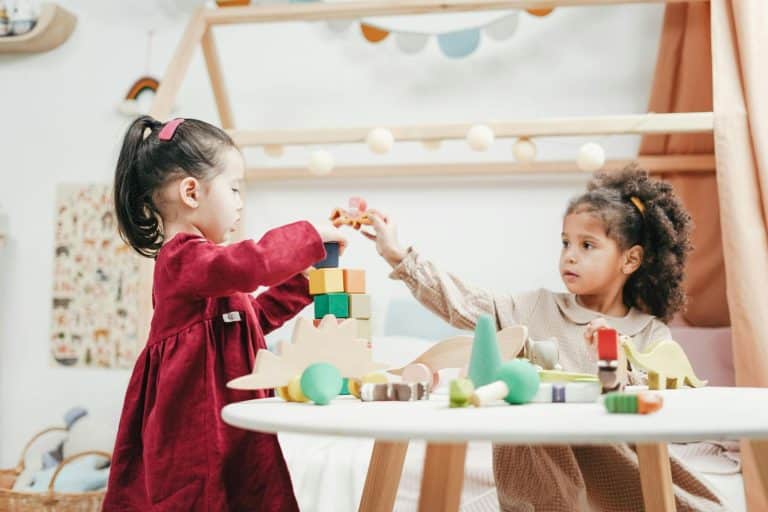Parenting involves a delicate balance of nurturing, setting boundaries, and showing affection to your kids. Your unique way of doing this is influenced by who you are as a person.
In today’s discussion, we’ll delve into how various personality types, as defined by the 16 personalities model, create distinct approaches to parenting. We aim to offer insights that will assist you in recognizing your inherent parenting tendencies, ultimately enhancing the dynamics within your family.
Understanding the 16 Personality Types
Personalities are categorized into 16 types based on preferences in four areas: Introversion/Extraversion, Sensing/iNtuition, Thinking/Feeling, and Judging/Perceiving. A letter from each four areas makes up your personality type, for example, ENFP (Extraverted, Intuitive, Feeling, and Perceiving).
These preferences shape our views of the world, our decision-making processes, and even our interpersonal interactions, which in turn influence our approach to parenting.
It’s very easy to discover what personality type you are as a parent. It’s as simple as taking a personality test at home and answering questions about how you would feel in different situations. In the end–you will discover your personality type, which is just the start of learning about yourself and embracing your strengths and weaknesses as a parent.
4 Main Parenting Styles According to the 16 Personality Types
The 16 personalities framework allows us to divide the 16 personality types into four different parenting styles. Let’s explore the intricacies of each and help you understand which type of parents you and your partner are:
#1. The Guardians (SJ Types: ESTJ, ESFJ, ISTJ, ISFJ)
Guardians as parents are typically practical and organized. They like creating an order and sticking to it. As times change, they still value tradition, and that’s what sets them apart from other types of parents.
Guardians are also typically the ones who enforce rules and traditions in the family. They believe in a structured environment and often focus on teaching responsibility and hard work.
However, they may struggle with flexibility and adapting to their child’s individual needs if these differ from traditional expectations.
#2. The Artisans (SP Types: ESTP, ESFP, ISTP, ISFP)
On the other hand, Artisans enjoy spontaneity. They might not always have a plan, but they are action-oriented and like to live in the moment.
That’s why artisan parents often bring fun and excitement into their children’s lives. They are less concerned with rules and put more focus on enjoying the moment, which can create a vibrant family environment.
However, their spontaneity might sometimes lead to a lack of consistency in parenting. This can be overcome by learning about your personality type as a parent and using it to bring out the best traits of yourself.
#3. The Idealists (NF Types: ENFP, ENFJ, INFP, INFJ)
The name says everything: Idealist parents are intuitive and like to lead with their feelings. They are most empathetic and seek to form meaningful connections.
Idealist parents prioritize emotional bonding with their children and are often attuned to their children’s feelings and needs. They encourage individuality and creativity, but they may sometimes find it challenging to enforce discipline.
#4. The Rationals (NT Types: ENTJ, ENTP, INTJ, INTP)
We have to end with the rationals, who always turn to their analytical side when it comes to making decisions, even parenting. They very well know how to be innovative and come up with bright solutions to everyday problems. Lastly, they are focused on competency and don’t want to show that they lack anything.
Rational parents value independence and self-reliance. They encourage intellectual development and critical thinking in their children. But they might sometimes overlook the emotional aspects of parenting, which can lead to neglecting their children’s emotions, which is not to be left without consideration.
The Impact of Your Personality on Parent-Child Relationships
The personality type of a parent can directly influence their parenting style, which highly impacts parent-child relationships.
For instance, an Introverted parent may prefer quiet bonding activities, while an Extraverted parent might seek family adventures. That could lead to having different levels of connection with your children and influencing the way they perceive you.
Similarly, a Thinking parent might focus on logical problem-solving, whereas a Feeling parent emphasizes understanding and empathy. Their children will, therefore, develop similar skills as them, or the opposite, leading to criticizing their parenting style when the children grow up.
Balancing Parents’ Strengths and Challenges
Each personality type brings unique strengths to parenting but also faces specific challenges. Let’s analyze this further:
- Guardians need to balance their love for structure with flexibility to accommodate their children’s unique personalities.
- Artisans can work on integrating some consistency and forward planning while maintaining their spontaneity and zest for life.
- Idealists might find it beneficial to incorporate some level of structure or boundaries into their empathetic and nurturing approach.
- Rationals could focus on integrating more emotional warmth and support into their parenting style.
Therefore, based on your personality type, as a parent, you will be exuding different strengths and weaknesses that your children might take up.
Closing Thoughts
Taking a personality test and discovering your personality type won’t change the way you are as a parent, but it can help you embrace your quirks to lead a happy and healthy relationship with your children. Knowing who you inherently are can help you create a better bond with your children, and help you meet all their emotional needs.
For example, a Guardian parent can learn to be more flexible, an Artisan more consistent, an Idealist more structured, and a Rational more emotionally attuned.
By knowing into which category they fall, parents can create a nurturing environment that accommodates both their and their children’s personalities and enjoy a family dynamic where everyone grows and thrives together.
Parenting, much like personality, is not one-size-fits-all, though. It’s going to be different for everyone, and that’s okay. Embracing learning, caring, and sharing love while our children are growing up will lead to happy and fruitful relationships.
By understanding your unique traits, you can improve your parenting style and deepen your relationships with your children, building a rewarding family life.










